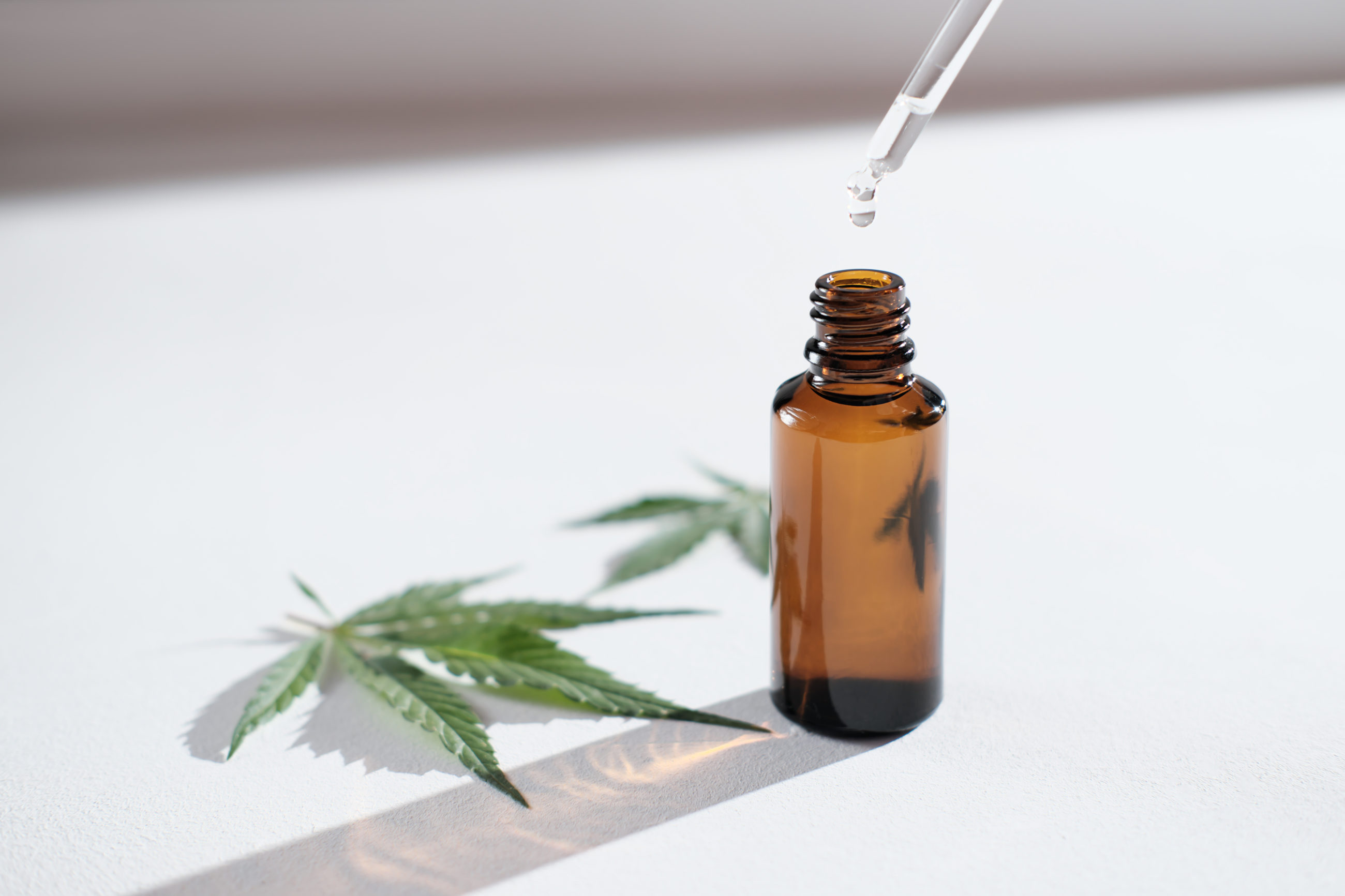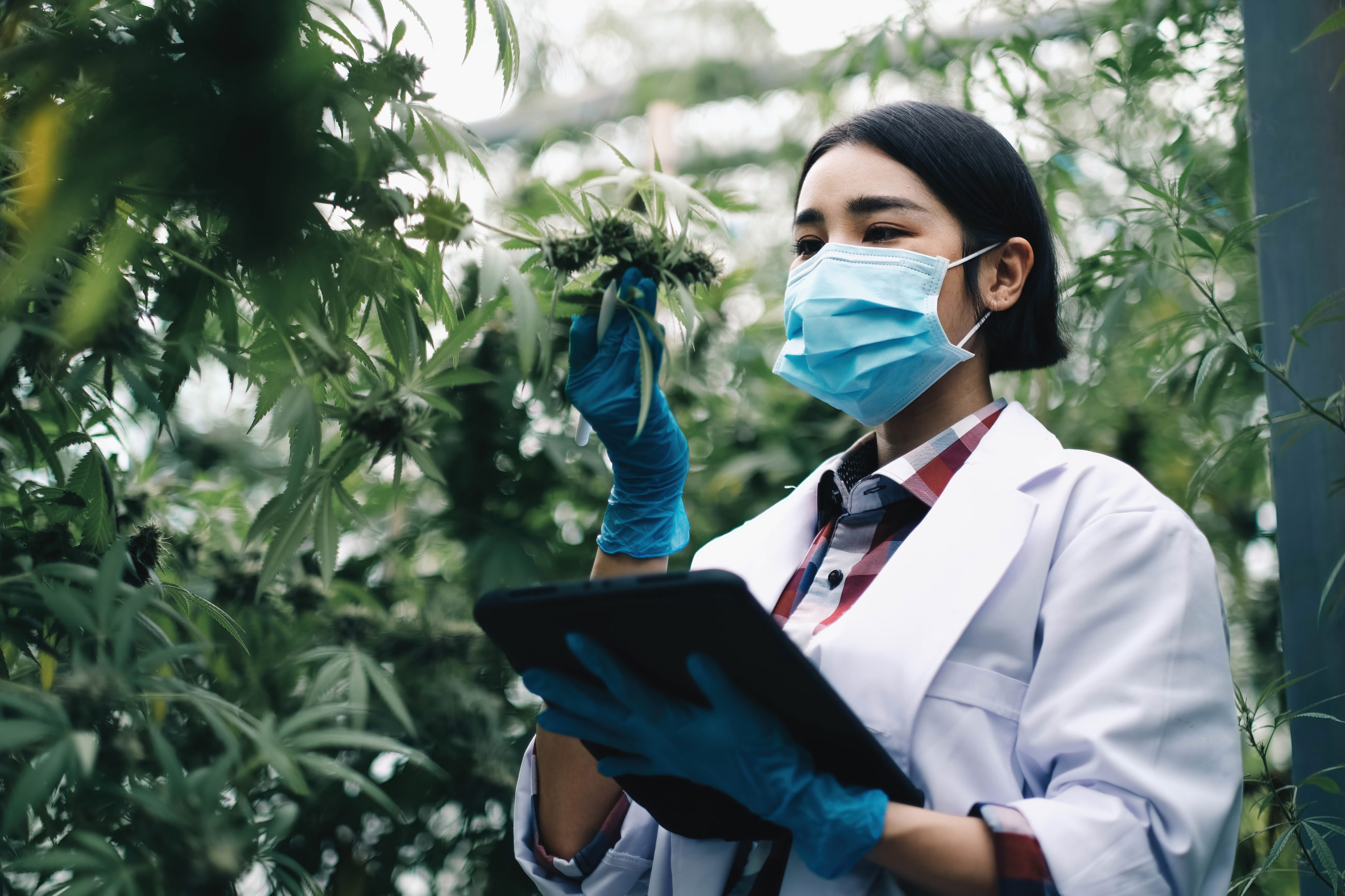Anxiety disorders are the most common mental health issue in the United States, impacting nearly 20% of the population, or approximately 40 million Americans annually. Despite this prevalence, only about 37% of those affected actively pursue treatment. Researchers and the general public have recently turned their attention to the potential therapeutic applications of Delta-9 Tetrahydrocannabinol (THC), the primary psychoactive compound found in cannabis, to address this widespread condition.
This article delves into THC’s potential as an anxiety treatment by evaluating scientific evidence and its efficacy, offering guidance for those considering integrating THC into stress management practices.
THC and Anxiety Relief
Countless people report using THC for anxiety and stress relief. Evidence suggests that THC’s calming potential may come from interacting with the body’s endocannabinoid system (ECS).
The ECS is a complex cell-signaling network that regulates various physiological processes, including mood, pain sensation, appetite, and immune response. THC interacts with the ECS by binding to its receptors, primarily CB1, in the brain and nervous system to help regulate various functions that balance the mind and body. Learn more about THC vs THCA and their effects on anxiety.
THC’s interaction with endocannabinoid system receptors plays a significant role in modulating the release of mood-regulating neurotransmitters (brain messenger chemicals), such as:
- Serotonin, commonly known as the “feel-good” neurotransmitter, is crucial in promoting feelings of well-being and happiness.
- Dopamine actively participates in the brain’s reward, motivation, and pleasure systems, influencing our behavior and emotions.
Binding with CB1 receptors also helps regulate the release of glutamate and GABA, two essential neurotransmitters that play a role in the body’s stress response. Glutamate is an excitatory neurotransmitter, while GABA is inhibitory; thus, their balance is vital for maintaining proper brain function and preventing excessive neuronal activity associated with anxiety.
Interestingly, THC’s ECS power lies in its structural similarity to a brain chemical called anandamide, nicknamed the “bliss molecule”. Both act as neurotransmitters that send chemical messages between nerve cells, influencing pleasure, memory, thinking, coordination, and sensory perception
THC’s influence on essential neurotransmitters reveals significant insights into its potential as a therapeutic solution for stress and anxiety relief.

Mood-boosting Benefits
THC’s varied ECS functions contribute to an overall sense of calm and relaxation that:
- Improves mood
- Enhances sleep quality
- Optimizes cognitive functioning
All of which are essential factors in supporting people with:
- Social anxiety
- Generalized anxiety disorder (GAD)
- Specific phobias
- Panic disorder
- Post-traumatic stress disorder (PTSD)
Those with social anxiety often find that THC helps alleviate intense fear and self-consciousness in social situations, while individuals with GAD sometimes notice a reduction in excessive worry and tension. THC also assists in diminishing irrational fears associated with phobias and managing the sudden episodes of intense fear in panic disorder. Additionally, Some people with PTSD report finding THC helpful in alleviating symptoms such as intrusive thoughts while promoting a sense of mental calmness.
Still, THC is not a ubiquitous anxiety reliever. In fact, many people say THC exacerbates their fears and paranoia, especially at high doses. Anyone considering using cannabis to manage anxiety symptoms should speak with a healthcare professional first.
Scientific Research and Case Studies
Building on the potential benefits of THC for anxiety relief, numerous case studies and research findings show promise in this area.
A recent study in Psychiatry Research analyzed over 7,000 adults diagnosed with depression and anxiety.
- The findings revealed that 43.9% used cannabis for anxiety and 25.9% for depression, significantly improving both conditions.
- Patients experienced notable reductions in General Anxiety Disorder-7 (GAD-7) scores, from 11.1 to 5.3, and Patient Health Questionnaire (PHQ-9) scores, from 13.7 to 7.4, within the first few months of treatment.
Another study from Wayne State University in Detroit examined the effects of low doses of THC on individuals with trauma-related psychopathology, such as PTSD. They aimed to understand how THC influences the brain’s response to threats in adults who have experienced trauma.
The study’s findings suggested THC may reduce the threat-related activity in the brain’s fear center (amygdala), potentially alleviating anxiety symptoms. Furthermore, THC increased activation in the medial prefrontal cortex (mPFC) and enhanced the functional connection between the mPFC and amygdala during threat processing. These preliminary results indicate that THC could provide a pharmacological approach for treating stress- and trauma-related conditions.

Choosing the Best Strains for Anxiety Relief
Every person reacts differently to cannabis so finding the right strain to manage anxiety symptoms may require trial and error. Still, the popular mood-stabilizing varieties below could be a great place to start.
- Cannatonic: This strain is a high-CBD, low-THC hybrid known for its relaxing properties. The balanced cannabinoid profile helps ease anxiety without causing intense psychoactive effects, making it an ideal choice for those seeking relief.
- Granddaddy Purple: As an indica-dominant strain, Granddaddy Purple is famous for its soothing effects. It contains a moderate amount of THC, which may help to reduce anxiety and promote relaxation in medical consumers.
- ACDC: Another high-CBD, low-THC strain, buyers report ACDC offers anxiety-relieving properties without producing psychoactive side effects. The low THC content allows medical consumers to enjoy the therapeutic benefits of cannabis while maintaining a clear head.
- Jack Herer: Consumers report this sativa-dominant strain is its uplifting and energizing effects. Although it has a higher THC content than some other strains, Jack Herer may still benefit from anxiety management because of its mood-enhancing properties.
Final Thoughts
THC holds tremendous promise as a potential treatment for anxiety. Individuals dealing with anxiety disorders can discover a source of relief by experimenting with strains and products known for calming effects. With thoughtful consideration and personalized approaches, THC can emerge as a valuable tool in managing anxiety, ultimately improving the overall quality of life and providing the comfort many seek.





